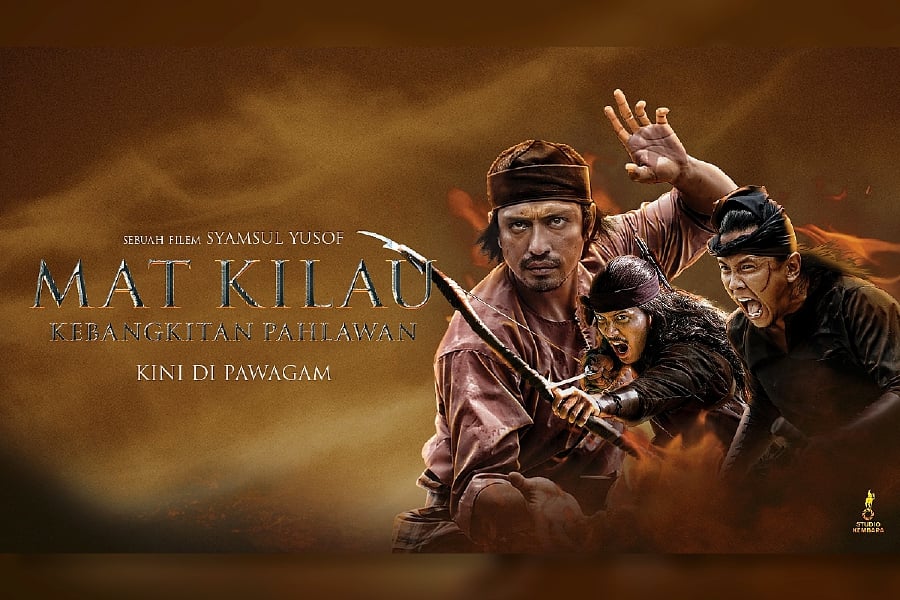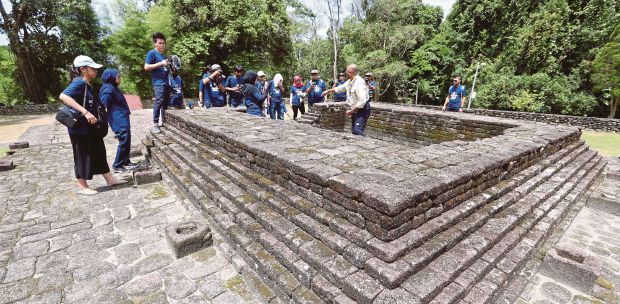This writer sees the strength of Syamsul Yusof 's Mat Kilau: Kebangkitan Pahlawan, from the retina of cultural diplomacy.
It is known to all that cultural richness is one of Malaysia's strengths. On this basis, cultural diplomacy is one of the main focuses in Malaysia's foreign policyframework.
In performing arts, Malaysia is no less impressive in producing high quality historical films for over half a century, some even received international recognition for their uniqueness.
Around the 1940s to 1960s, many of the films produced were based on the history and tales of the people (hikayat), such as Hang Tuah, Sultan Mahmud Mangkat Dijulang, Tun Fatimah, Hang Jebat, Sarjan Hassan, Bukit Kepong and many more.
Apart from their own experience living in the colonial and early independence era, films have also greatly contributed to why previous generations had stronger sentimental values, beliefs and admiration for their history and traditions.
This development does not just stop there. In the 2000s era, history-adapted films were still occasionally produced, such as Embun, Leftenan Adnan, Puteri Gunung Ledang, Hikayat Merong Mahawangsa, 1957: Hati Malaya and Tanda Putera.
Mat Kilau is not only unique as its line-up includes award-winning actors, it is also successful in presenting the beauty of Malay culture, such as silat and traditional attire.
The "Mat Kilau phenomenon" proves that the majority of Malaysians still appreciate and embrace the country's history.
On another perspective, this is our forte that is worth leveraging. The development of technology today should be utilised to support Malaysia's foreign policy in promoting its cultural and historical heritage to the world.
We should never belittle the "power of virality". With more social media users giving their reviews and support for our local films, they can even reach out to other regional and international communities to get to know the history of Malaysia.
History is not only to be remembered but also to be learnt because without it, a country will lose its identity and direction.
South Korea, Turkey and Indonesia are among the countries that express pride for their history through historical movies.
South Korea, for example, has dozens, perhaps even hundreds of films and dramas depicting the times of the Goryeo and Joseon dynasties, and the Korean War.
Similarly, Turkey has promoted Islamic history through Payitaht: Abdulhamid, adapted from the Ottoman caliphate.Indonesia is more interested in telling the life stories of its nationalistic figures, such as Soekarno, Habibie and Ainun, and Kartini. These have contributed to how the world views them as a nation with strong national and cultural identity.
Malaysia was ranked 36th in cultural influence by the US News, and third best in Asean after Singapore and Thailand.
The promotion of one country's cultures and values through films, music, and others is not just for profit, entertainment and popularity.
In fact, this is seen as a potential to make history and culture as tools in diplomacy. For this, US political scientist, Joseph S. Nye asserts that the question of "whose story wins" is more crucial than "whose army wins".
Cultural diplomacy allows the notion of soft power to be established which will give a country an advantage to exert its influence at the regional and international level through attraction and persuasion rather than coercion.
In addition, it can also enhance bilateral relations between countries through various means. I remain optimistic that cultural diplomacy should start at home.
The aspiration to make our culture a tool of diplomacy and soft power requires support and close cooperation between cultural diplomacy actors, including the Foreign, and Communications and Multimedia Ministries, National Film Development Corporation, National Academy of Arts, Culture and Heritage, higherlearning institutions, private art academies, and artists at large.
Every industry — not just film — have different roles to play as cultural ambassadors of the nation in strengthening our power of identity to the world.
The writer is assistant director at Centre for Political Studies and Economic Diplomacy, Institute of Diplomacy and Foreign Relations





